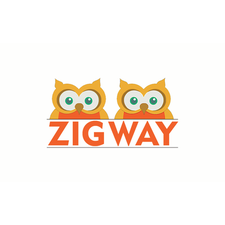ZigWay

Organization Details
ZigWay is a fintech social enterprise based in Yangon, Myanmar whose mission is help people lift themselves out of poverty. ZigWay helps low income families access cheap loans or a subscription of goods and services daily necessities through mobile technology It has created a mobile application, machine-learning based credit scoring model and a full supporting back office system to help people access cheap, convenient, flexible credit from regulated lenders instead of informal moneylenders at a fraction of the cost. Further, ZigWay’s lending system is premised on a distribution system via Super-Users, women from their communities who ZigWay trains to use its app to help register other borrowers and handle loan repayments via mobile money. This enables ZigWay to reach beyond smartphone-savvy borrowers to disadvantaged and less phone literate borrowers at the last mile.
Support Needs
We’re looking to improve our product engineering with:
Software Development
Impact Story
Myanmar’s formal financial market fails to meet the needs of the economically vulnerable. Regulated lenders are unable to replicate the quick decision-making, timeliness and flexibility of moneylenders of their labour-intensive processes and restrictive core banking systems. Insufficient financial incentives have existed for formal lenders to serve the poor, who are considered low- margin customers given the high cost of providing small loans. Moreover the free market sometimes penalizes the poor by making them pay more than other households, per unit of consumption, these poverty penalties occur without any particular ill will on the part of the actors in the commercial sector, but have dire consequences in keeping the poor trapped in poverty in Myanmar the poor pay up to 20% more for the same amount of goods each month because they can’t afford to buy in bulk.